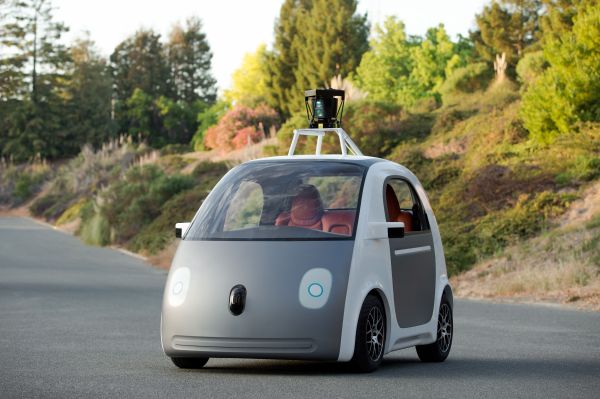Uber CEO Travis Kalanick has just confirmed a “record breaking” valuation to Kara Swisher at the CODE Conference today. That financing, which could total more than $500 million, would be on top of the more than $300 million that the company has raised since being founded in 2010.
Investors interested include mutual fund BlackRock and private-equity firm Technology Crossover Ventures.
We’ve heard that other parties interested hail mainly from the East Coast, and that the gist of the WSJ’s $17 billion valuation story is accurate. And we’re guessing the “record” it breaks is the $10 billion valuations of Airbnb, Dropbox and Xiaomi. The deal is still being shopped, so these figures of course could change.
What could justify such a grand round?
Sometimes truth is stranger than fiction: Last summer I wrote a fictional dispatch from 10 years in the future about Uber purchasing self-driving cars from Google. That tie-in might not take nearly that long to come to fruition.
“When there’s no other dude in the car, the cost of Uber becomes cheaper than owning a vehicle,” Kalanick said onstage. What could he possibly be referring to?
According to a source, Uber will be a part of Google’s self-driving car pilot program at some point in the far future. Hints at the company’s involvement follow Google co-founder Sergey Brin’s unveiling of the self-driving prototype at the conference yesterday.
Uber might enable those cars, which lack a steering wheel and pedals to actually drive, to be hailed through its mobile app when there are enough prototypes on the road and the cars are deemed road-safe. Right now the self-driving vehicle is in a limited test in the Mountain View area.
While our source says that it might be ages before anything comes to market at scale, it just makes sense that Google and Uber are further cozying up to one another. Last summer, Google’s venture firm invested $258 million into Uber as part of a huge round of funding. More recently, Google added the ability to hail an Uber from its Google Maps app. And today, it announced an Android-powered new driver program.
Since last summer’s funding round, Uber has been aggressively expanding its service, which is now available in more than 100 cities around the world.
Last December, leaked numbers pegged Uber at an estimated $1 billion run rate for gross revenues. That number has grown to $1.5 billion, according to reports.
The company is seeking to recruit more drivers in many of its major markets, thanks to a program launched last fall that provides auto financing for those who use its platform.
It’s worked hard to clear up any ambiguity around who is responsible for accidents that may happen while drivers are using its platform by closing the so-called “insurance gap” and providing coverage for drivers even in times when a passenger is not in the car.
Of course, running a bunch of driverless cars will eliminate many of the regulatory and insurance issues associated with its drivers, but will create whole new regulatory questions for the company.
The company has also been experimenting with new offerings and services, particularly in New York City. It launched an on-demand courier service in the Big Apple early last month, and followed that up with an offering that would enable parents to have access to car seats while escorting their kids around town. In the past, Uber has used on-demand marketing stunts as a way to drum up business and capture new users, but these latest tests seem like they could become new ways to diversify its business in other markets.
But self-driving cars, if they ever do become street legal, could be a killer app for a company that is fundamentally trying to change the way people get around.
